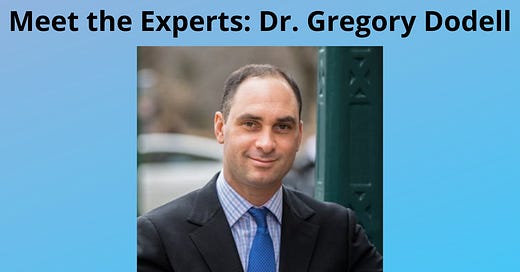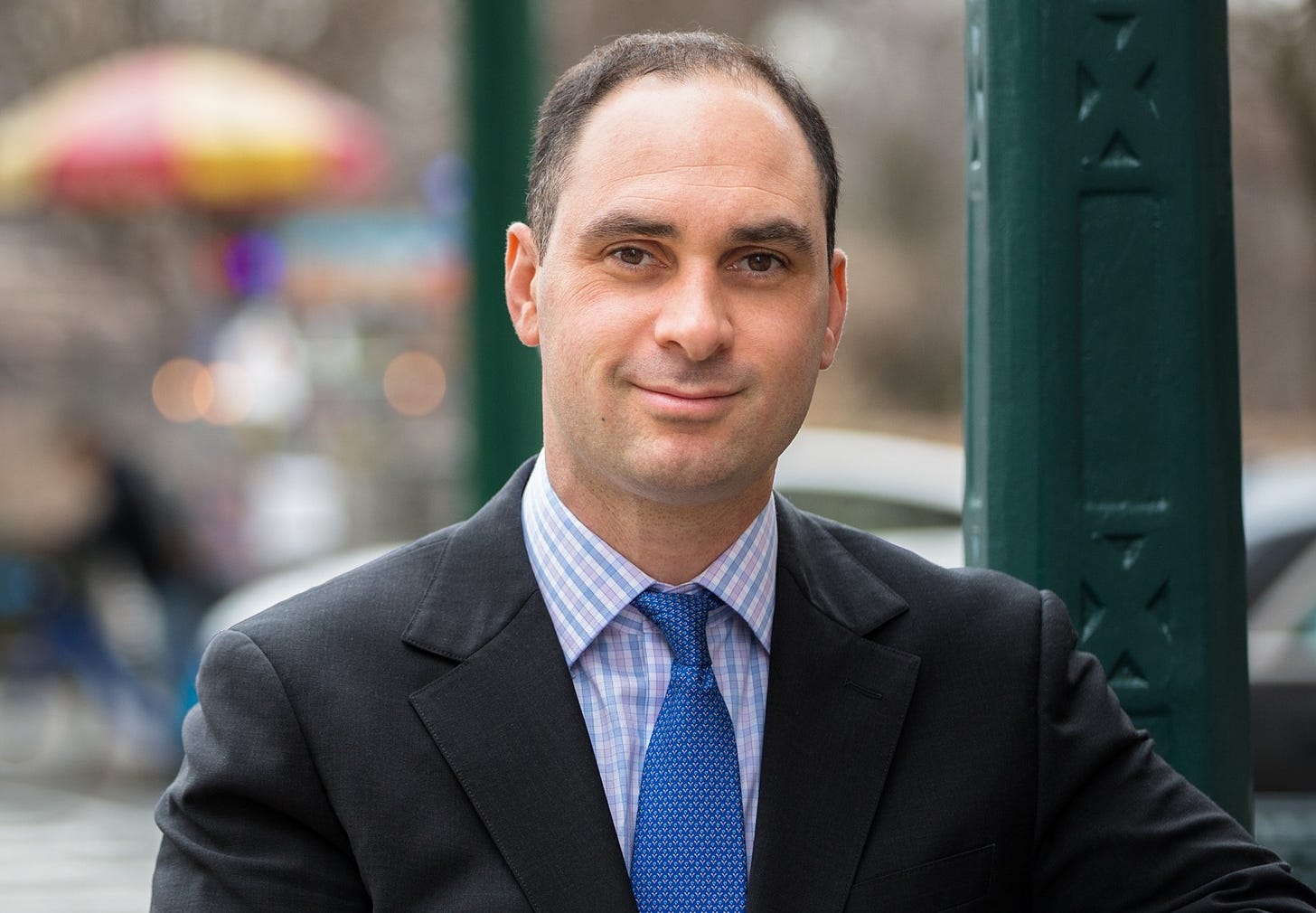This is the Weight and Healthcare newsletter. If you like what you are reading, please consider subscribing and/or sharing!
I first heard about Dr. Dodell from his Instagram account and then I got to know him better when he and I were on the show The Doctors together. Endocrinologists have such an (earned) reputation for fatphobia, it’s great to know that there are weight-neutral endocrinologists out there!
1. Tell us a bit about yourself and your work
I always wanted to be a doctor, well at least since the age of 6 or so (as I have been told). Thought I would be a pediatrician since I love kids, but when I had a great adult endocrine professor in medical school I decided that would be a great specialty. Endocrine is fascinating from a science perspective, and also I love that it impacts the whole body. I also appreciate that I get to treat people across the age spectrum (at least starting at age 18). I always wanted to have my own practice, and was fortunate to join an older endocrinologist right out of training with the plan that I would take over after 5 years. It was wonderful having a mentor in my early years of practice and then helping continue with a long standing practice.
2. How did learn about the concept of weight-neutral, body affirming care?
My wife is the brilliant and amazing Alexis Conason, PsyD. We came from similar training backgrounds. She was introduced to HAES and over the years started educating me and sharing her experience using this weight inclusive/non-diet approach with patients. And, her book (The Diet Free Revolution) really reinforced and elucidated the rationale for a weight neutral approach. It took me a while to truly get it and adopt this approach since my training and the medical community is very weight focused. I started getting referrals from HAES providers, and hearing the stories of their experience with healthcare and realized this approach is the one I want to take for my patients. It has been very fulfilling providing this care for patients.
3. How have you/do you apply those concepts to your work?
I focus on behaviors rather than weight (which is not a behavior) and discussing lifestyle with my patients. People may lose weight as a result of changes, but they may not, or may gain weight. I practice endocrinology in the same manner as my colleagues (I suspect) without a focus on weight. I encourage getting joyful movement, stress management, adequate sleep, and having a diet with protein and fiber etc (I focus on adding foods rather than subtracting). I inquire about a history of disordered eating and encourage having a treatment team as indicated. I have found that patients are receptive to this approach.
4. What’s one thing that you wish people who are still working from a weight-focused paradigm could learn/know?
That many patients avoid going to the doctor due to previous experiences of weight stigma. Many have told me that they have left many appointments in tears and feeling bad about themselves. That we can discuss health promoting behaviors without a focus on weight. That data clearly shows that people can be healthy across the size spectrum and we should not assume or judge anything about someone based on the number on the scale.
5. How and where do we find you and your work?
Instagram: @everything_endocrine
Twitter: @dodellmd
Website: centralparkendocrinology.com
Did you find this post helpful? You can subscribe for free to get future posts delivered direct to your inbox, or choose a paid subscription to support the newsletter and get special benefits! Click the Subscribe button for details:





I had a very frustrating fatphobic experience with an endocrinologist who basically ignored my statement off the bat that I wasn't interested in pursuing intentional weight loss (she interpreted this as "I don't think I'm capable of losing weight, but if you convince me and give me enough "resources" then I'll change my mind). It's a relief to see Dr Dodell singing a different tune.
I'm curious if it would ever be possible to get longer interviews with some of these people? I'm guessing from the "5 questions" format that it's intended more as an introduction, but I'd love to hear more from Dr Dodell about what he sees in his field, how exactly his practice has changed, maybe even some insights into how patients can better navigate seeing an endocrinologist, etc.